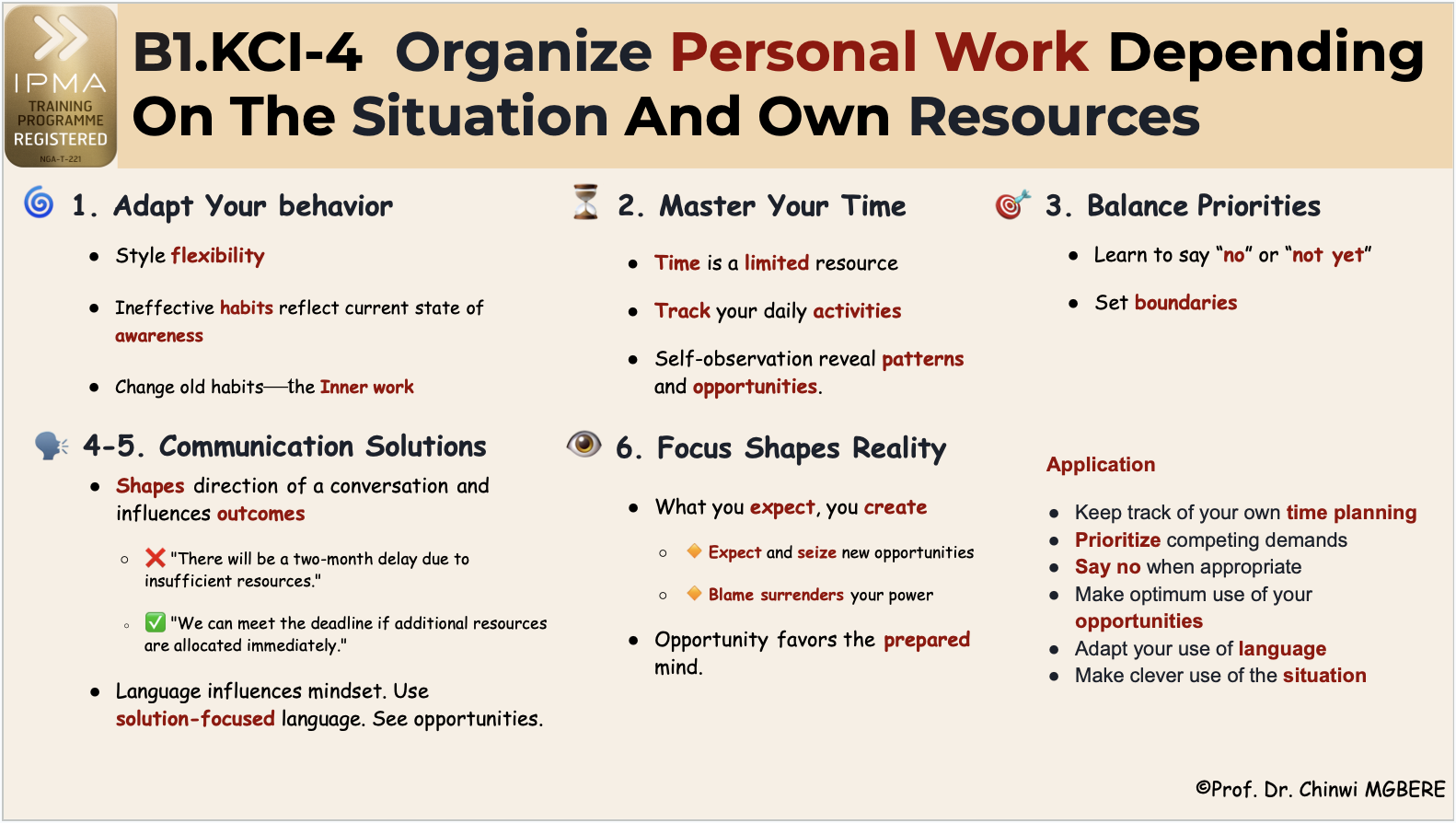

45min.

1. No two situations are alike, requiring constant behavior adaptation—a skill called style flexibility.
While we all have preferred ways of acting, they’re not always effective. Under pressure, we often revert to our old, ineffective habits, that reflect our current state of awareness.
Changing these old habits—the inner work, takes patience, self-awareness, and time.
2. Time is a limited resource, and often there's more to do than time allows.
Under pressure, trying new behaviors can feel overwhelming. Effective time management is key to creating space for self-development.
Start by tracking your daily activities to gain insight into how you spend your time: How long can you stay focused? How often do you check your smartphone or social media?
This self-observation reveals patterns, conditioning, your present state of awareness, and opportunities to optimize your time use.
3. Learn to balance the demands from others with your own priorities.
When appropriate, say “no” or “not yet” —while considering the relationship. It's easier with a colleague than a client.
Learning to set boundaries gracefully is a critical skill for maintaining focus and effectiveness.
4. Communicate in a Solution-Focused Way.
The way you phrase things shapes the direction of a conversation and influences outcome. Instead of focusing on problems, focus on solutions.
For example, "There will be a two-month delay due to insufficient resources,"
reframe it positively: "We can meet the deadline if extra resources are allocated immediately." Both convey the same reality, but the second frames it in a constructive, solution-focused way.
5. Language influences mindset, how you view situations—seeing either problems or solutions. Make it a habit to use solution-focused language— not just in communication, but also in how you think about challenges. Start seeing opportunities, not just problems!
6. Your focus defines your experience. This is the power of observation—the true silent creator of your reality.
When you expect opportunities, you notice and seize them. When you blame failure on external factors, you surrender your power.
Remember, opportunity favors the prepared mind. Cultivate the belief that good things are always on their way — and they will be.
To convert the above into actions for your project/programme/portfolio, follow these steps:
Access is required to view content